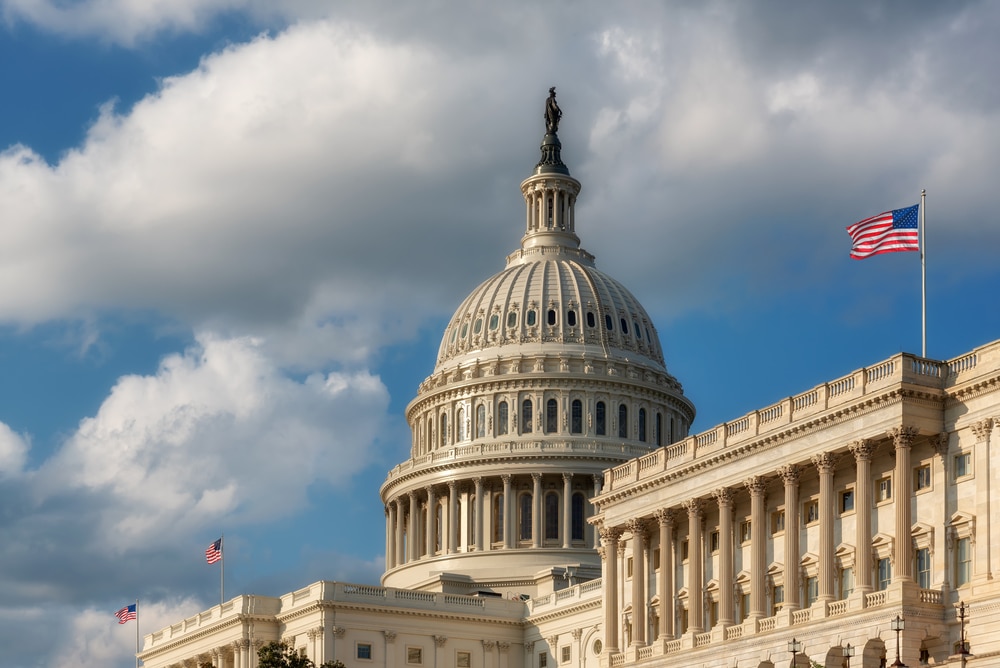Key Insights:
- The new law empowers the US President to restrict digital asset transactions linked to terrorism, stirring up concerns in the crypto community.
- Legislation may push users towards KYC-compliant blockchain networks, impacting decentralized finance.
- The proposed law incorporates elements from the Terrorist Financing Prevention Act, expanding Treasury’s power over crypto transactions.
A new law proposed by United States Senator Mark Warren generates concern within the crypto community. The legislation, submitted to the Senate for review, aims to empower the President to restrict access to digital assets. The move is intended to combat terrorism and other illicit activities by restricting transactions between US residents and foreign entities flagged for terrorism links.
Scott Johnsson, a finance lawyer and advocate for the crypto economy, took to social media to discuss the potential effects of this legislation. He believes the President could use the law to impose bans on decentralized finance (DeFi) protocols deemed problematic by the US Department of Treasury. Johnsson suggested that the law could enable the Treasury to block transactions involving any protocol or smart contract operated by sanctioned foreign entities.
Borrowing from Existing Legislation
Johnsson’s concerns are rooted in a recent X post revealing that Senator Warren had incorporated elements from the Terrorist Financing Prevention Act [S.3441] into the new law. This act, introduced in December 2023 by US Senators Mitt Romney, Mark Warner, Mike Rounds, and Jack Reed, grants the Treasury the authority to block transactions to foreign digital asset facilitators flagged as sanctioned entities.
The finance lawyer feared this new clause could give the Treasury undue power over the crypto sector. He warned that it might lead to significant changes in managing digital assets, potentially undermining decentralized finance and forcing users towards Know Your Customer (KYC)-compliant and permissioned blockchain networks.
Impact on the Crypto Sector
The proposed law has raised alarms within the crypto community, with many fearing it could limit the industry’s growth and innovation. The law’s broad applicability could compel users to migrate to regulated blockchains, restricting their access to decentralized finance platforms. The law defines crypto assets as any digital representation of value secured by cryptographic ledgers, including communication protocols and smart contracts.
If enacted, the law would allow the President to restrict transactions between US residents and foreign entities linked to terrorism. This move could also impose stringent conditions on American financial institutions found facilitating such transactions, adding another layer of compliance and regulation.
Political Climate and Crypto Legislation
The proposal comes amid significant political discord in the United States regarding regulating cryptocurrencies. While some legislative actions have favored the industry, such as the Financial Innovation and Technology for the 21st Century Act, others have faced opposition. Recently, Congress passed a bill addressing the SEC’s Staff Accounting Bulletin No. 121 (SAB 121), which prohibits banks from holding digital assets and requires companies that custody cryptocurrencies to record customer crypto holdings as liabilities on their balance sheets.
President Joe Biden, however, vetoed the bill, stating that it does not support the success of the American people. He emphasized that his administration would not back measures that jeopardize the well-being of consumers and investors. This mixed approach reflects the ongoing debate within the government about the best way to regulate the emerging crypto economy while protecting national security interests.
The proposed law represents a significant step in the US government’s efforts to regulate digital assets and combat terrorism. By granting the President the authority to block access to digital assets, the legislation aims to prevent the misuse of cryptocurrencies for illicit activities. However, the potential impact on the crypto sector has raised concerns among industry stakeholders, who fear such measures could stifle innovation and growth.
At Tokenhell, we help over 5,000 crypto companies amplify their content reach—and you can join them! For inquiries, reach out to us at info@tokenhell.com. Please remember, cryptocurrencies are highly volatile assets. Always conduct thorough research before making any investment decisions. Some content on this website, including posts under Crypto Cable, Sponsored Articles, and Press Releases, is provided by guest contributors or paid sponsors. The views expressed in these posts do not necessarily represent the opinions of Tokenhell. We are not responsible for the accuracy, quality, or reliability of any third-party content, advertisements, products, or banners featured on this site. For more details, please review our full terms and conditions / disclaimer.
